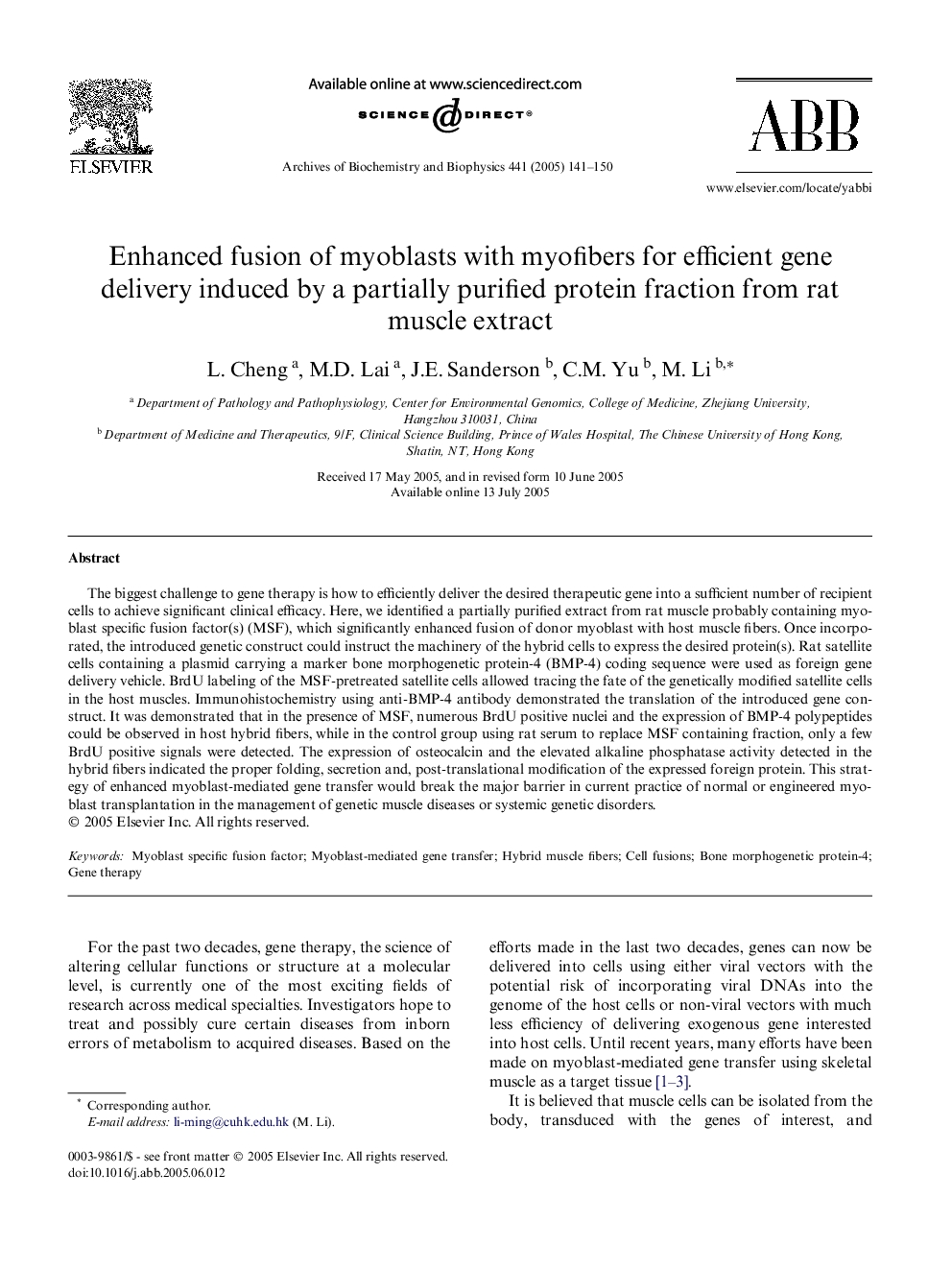| Article ID | Journal | Published Year | Pages | File Type |
|---|---|---|---|---|
| 9882123 | Archives of Biochemistry and Biophysics | 2005 | 10 Pages |
Abstract
The biggest challenge to gene therapy is how to efficiently deliver the desired therapeutic gene into a sufficient number of recipient cells to achieve significant clinical efficacy. Here, we identified a partially purified extract from rat muscle probably containing myoblast specific fusion factor(s) (MSF), which significantly enhanced fusion of donor myoblast with host muscle fibers. Once incorporated, the introduced genetic construct could instruct the machinery of the hybrid cells to express the desired protein(s). Rat satellite cells containing a plasmid carrying a marker bone morphogenetic protein-4 (BMP-4) coding sequence were used as foreign gene delivery vehicle. BrdU labeling of the MSF-pretreated satellite cells allowed tracing the fate of the genetically modified satellite cells in the host muscles. Immunohistochemistry using anti-BMP-4 antibody demonstrated the translation of the introduced gene construct. It was demonstrated that in the presence of MSF, numerous BrdU positive nuclei and the expression of BMP-4 polypeptides could be observed in host hybrid fibers, while in the control group using rat serum to replace MSF containing fraction, only a few BrdU positive signals were detected. The expression of osteocalcin and the elevated alkaline phosphatase activity detected in the hybrid fibers indicated the proper folding, secretion and, post-translational modification of the expressed foreign protein. This strategy of enhanced myoblast-mediated gene transfer would break the major barrier in current practice of normal or engineered myoblast transplantation in the management of genetic muscle diseases or systemic genetic disorders.
Related Topics
Life Sciences
Biochemistry, Genetics and Molecular Biology
Biochemistry
Authors
L. Cheng, M.D. Lai, J.E. Sanderson, C.M. Yu, M. Li,
